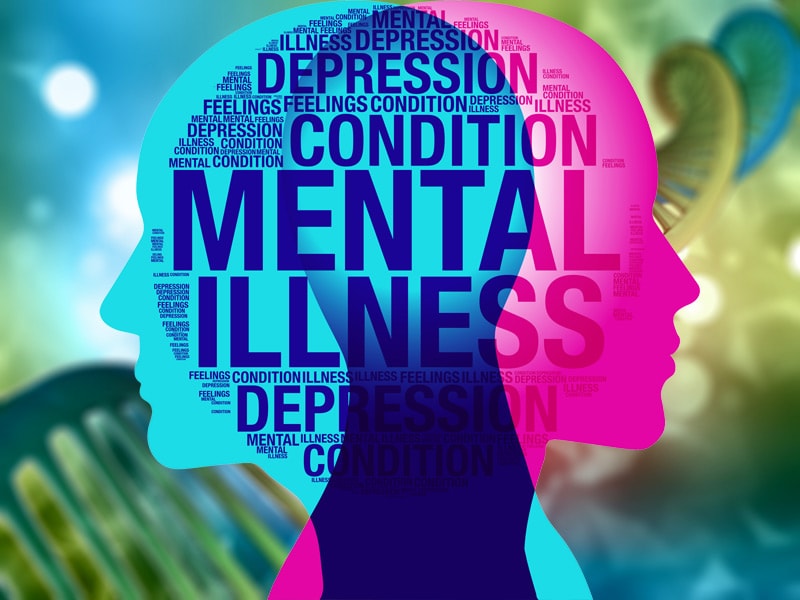Mental health is an important part of human health. First of all, it is due to the fact that the human body, in which all elements are interconnected with each other and affect each other, is largely under the control of the nervous system, so the mental state affects the work of each of the functional systems, and the state of the latter, in turn, affects the psyche.
Mental health should be characterized:
- Absence of mental or psychosomatic illnesses.
- Normal age-related mental development.
- Favorable (normal) functional state.
Favorable mental state is considered as a set of characteristics and functions corresponding to the age norm and providing effective performance of tasks faced by a person in various spheres of life.
A person’s psyche, especially that of a developing child, is characterized by a connection between the changing genetic program and the social environment. Therefore, the norm of mental health is very complex and the boundary between disease and health is blurred in some cases.
This is why borderline conditions are much more common in the nervous system than in other organs and systems. This is especially important when performing a particular job, accompanied by mental tension.
This tension is a physiological “price” that the body pays for the implementation of activities. The same level of efficiency is provided by different people at the cost of different efforts, which is especially noticeable in children.
For the ongoing assessment of mental health, self-monitoring of their condition, everyone can use some simple techniques that do not require special equipment and expertise.
The undisputed criterion of mental health is the adequacy of sleep as an important component of human life.
One of the leading indicators of the normal state of the psyche is mental performance, which integrates the main characteristics of the psyche – perception, attention, memory, etc.
A high level of mental performance is one of the main indicators of mental health and functional state of the body as a whole. Decrease in mental performance is an important indicator of mental health deterioration. It is usually accompanied by reduced attention, concentration difficulties, lethargy, apathy, and loss of interest in work or study.
If the decline in performance is combined with vegetative changes, headaches, psychosomatic disorders (pain and discomfort in various areas of the body), depressed state, unreasonable fears, it may indicate fatigue or fatigue.
Mental health promotion is a task for society as a whole and for each individual. The solution of this problem is impossible without a deep knowledge of the essence of the human psyche, individual features of its organization, understanding the value of each individual, its uniqueness.

WHO estimates that more than 450 million people worldwide live with mental illness today. Mental disorders are one of the most significant public health problems in terms of prevalence, morbidity and disability.
Mental disorders have been found to affect more than a third of the population each year, with depression and anxiety being the most common.
Mental health problems are a major cause of disability and early retirement in many countries and a major burden on the economy, and my country is no exception.
In Nesvizhskaya CSB under the supervision of a psychotherapist there are currently 790 patients, during the year 1860 people applied for help. One of the most common disorders is depression. The urgency of the problem of depression is due not only to their high prevalence, but also to the severity of the consequences.
Biological mechanisms of depression cause various somatic disorders. According to WHO, about 5% of the world’s population suffers from depression, and the risk of becoming depressed over the course of their lives is constantly increasing and reaches 20%.
Approximately 15% of depression patients commit suicide. Depression is the cause of 60% of all suicides. The risk of suicide is particularly high when combined with depression and chronic physical or neurological illness.
According to statistics, depression is more common in women than in men. Depression has a number of adverse health and social consequences. Depression has a serious impact on the quality of life and adaptive capacity of the individual, and can lead to a decrease in professional status with forced job changes, family breakdown and other negative consequences.
Prevention of mental illness.
Healthy sleep. Adults should sleep 8 hours a day, children and teenagers – 9 hours.
Rational nutrition. Regular, balanced diet is a guarantee of physical and psychological health. The diet should include products that are sources of tryptophan. Lack of it in the diet leads to depression, anxiety, irritability, impatience, impulsiveness, overeating, weight gain, excessive consumption of carbohydrates, memory impairment, insomnia.
The richest sources of tryptophan are: beans and peas, cereals, mushrooms, fermented milk products, cheese. As well as meat, fish, carrots, beetroot, cabbage, white cabbage, nuts.
Hypodynamy leads to a decrease in overall tone and efficiency. Sports activities, hiking, moderate physical activity help emotional discharge of the body.


